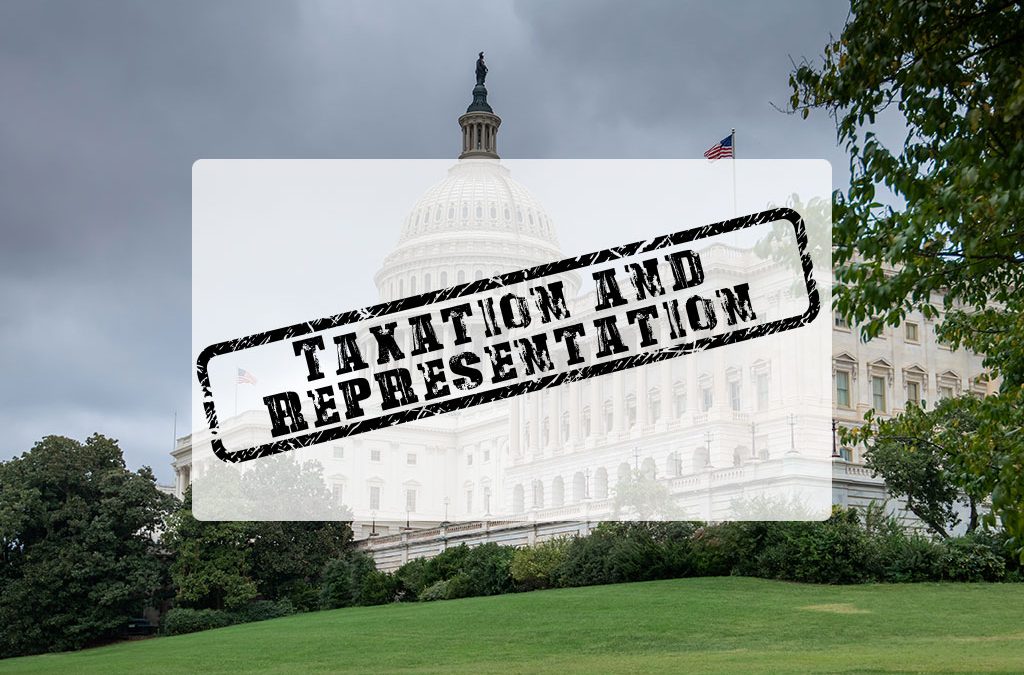The data is in! See what family owned businesses are saying about today’s challenges and opportunities.
Supreme Court Justices Signal Narrow Ruling in Repatriation Tax Case. On Dec. 5, the U.S. Supreme Court heard oral arguments in Moore v. United States, a case relating to the mandatory repatriation tax (MRT) from the Tax Cuts and Jobs Act (TCJA, Pub. L. 115-97). The MRT required U.S. citizens to pay a one-time repatriation tax on the earnings of foreign companies held by U.S. shareholders. The tax applies to earnings from controlled foreign corporations, even if they are distributed to U.S. shareholders. The provision was included in the TCJA as part of the transition from a worldwide to a quasi-territorial tax system for U.S. companies and their shareholders.
House Republicans Express Interest in Year-End Tax Deal. On Nov. 29, Rep. Rudy Yakym (R-IN) led a group of about 150 House Republicans in a letter to House Speaker Mike Johnson (R-LA), urging the House to consider restoring several expired tax provisions from the Tax Cuts and Jobs Act (TCJA). The letter specifically identified three TCJA-era provisions: immediate research and development (R&D) expensing, bonus depreciation, and restoration of a broader limit on interest deductibility. The letter asserts that restoring these provisions would incentivize economic growth, and that “failing to act quickly will jeopardize hundreds of thousands of American jobs.” Adding to the voices of support include a group of 1,000 small businesses, who sent a letter to the leadership of the Senate Finance and House Ways and Means committees urging Congress to renew the R&D expensing credit, stating that the expiration will “inadvertently stifle American innovation and compromise our nation’s leadership in science, technology, and innovation.”
Tax Court Rules In IRS’ Favor on Limited Partnership Taxation. On Nov. 28, the U.S. Tax Court ruled that a “limited partner” label does not automatically exempt its founders from self-employment taxes on partnership-allocated earnings. The decision was closely watched by investment funds and other firms organized as limited partnerships, and Soroban Capital Partners LP, the petitioner in the case, still has the opportunity to appeal.
IRS Issues Guidance on Cash or Deferred Arrangements Under Section 401(k). On Nov. 27, the Internal Revenue Service (IRS) released a notice of proposed rulemaking that would amend the rules applicable to plans that include cash or deferred arrangements under section 401(k) to provide guidance with respect to long-term, part-time employees. The proposed regulation would affect participants in, beneficiaries of, employers maintaining, and administrators of plans that include cash or deferred arrangements. The notice also notes that a public hearing on the proposed regulation has been scheduled for March 15, 2024.

About Brownstein Hyatt Farber Schreck
Brownstein Hyatt Farber Schreck is a unique law firm. Walk into any of our offices and you’ll immediately recognize a different type of energy. Complacency doesn’t have a place here. Flexibility and inspiration do. Our culture and enthusiasm allow our attorneys, policy consultants and legal staff to stay ahead of our clients’ needs and provide them with the resources they require to meet their business objectives.
We hope you’ve enjoyed this article. While you’re here, we have a small favor to ask…
As we prepare for what promises to be a pivotal year for America, we’re asking you to consider becoming a supporter.
The need for fact-based reporting of issues important to family offices and successful families and protecting a lifetime of savings has never been greater. Now more than ever, family offices and successful families are under fire. That’s why Policy and Taxation Group is passionately working to increase the awareness of issues important to family offices and successful families, while continuing to strengthen our presence on Capitol Hill.
Policy and Taxation Group is the Voice for Family Offices and Successful Individuals in Washington, DC focused exclusively on the critical tax and economic policies that impact them.
Since 1995, Policy and Taxation Group has been the leading advocacy group working to reduce and eliminate estate tax, gift tax, and generation skipping transfer tax while blocking increased income tax and capital gains taxes, the creation of a wealth tax, and other hostile tax policies that punish hardworking taxpayers and success.
#incometax #CapitalGainsTax #R&DExpensing #DontPunishSuccess #GrantorTrusts #StepUpinBasis #likeKindExchanges #AcceleratedDepreciation #EstateTax #Deathtax #wealthtax #taxLegislation #incometaxrates #repealestatetax #FamilyOffice #SuccessfulFamilies @PolicyAndTaxationGroup @DitchTheEstateTax #PolicyAndTaxationGroup #DitchTheEstateTax

